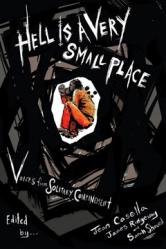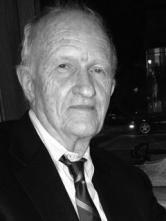Mercy Is Possible, Even in Texas
Dear Fearless Reader,
Last month, the state of Texas decided to kill one of our authors: Thomas Whitaker, a contributor to Hell Is a Very Small Place: Voices from Solitary Confinement, a collection of writing about solitary confinement in American prisons that The New Press published in 2016. Whitaker was scheduled to die on Thursday, February 22, 2018.
In Texas, all prisoners on death row are held in solitary, a practice that has been condemned by international human rights observers as torture. While on death row, Whitaker, who masterminded the murders of his mother and brother in 2003, completed bachelor’s degrees in English and sociology, graduating summa cum laude, and began working toward a master’s degree in sociology from California State University. He also became a prolific jailhouse lawyer, with cases that include a class action suit against the conditions of extreme isolation and deprivation on Texas’s death row—not dissimilar to the conditions in which he will now live out the coming decades of his life.
Less than an hour before the planned murder, the governor of Texas, Greg Abbott, granted Whitaker clemency, commuting his sentence to life in prison without parole. As Jean Casella, co-editor of the book and co-founder of Solitary Watch, said to me, “Mercy is possible, even in Texas.”
But mercy for whom? Upon his clemency, Whitaker told the media, “I deserve any punishment for my crimes . . . and I’ll do my best to uphold my end of the bargain.” His end of the bargain is to die in prison.
Whitaker’s sensational crime and his father’s (who barely survived the crime) brave advocacy for him have made front-page news. But his excellent essay in Hell Is a Very Small Place isn’t about any of that; it’s not about Whitaker himself at all. Instead, he takes us into a world most of us will never visit and gives us a visceral understanding of what prison does to human beings by telling the story of a fellow prisoner, Mad Dog, who is held in solitary confinement. Whitaker is the only one of the incarcerated contributors to the book who took that approach. And his work is one of the best pieces of narrative storytelling I have ever read.
So today, we celebrate with Whitaker and his family his renewed life, even while we know he will never escape his own labyrinth. I am selfishly grateful, not for the mercy, but for the potential for more exceptional writing from Thomas Whitaker’s razor-sharp pen.
Read Whitaker’s essay from Hell Is a Very Small Place here; also check out the writing on Solitary Watch’s blog and on Thomas Whitaker’s own blog, maintained by outside advocates, Minutes Before Six, on which he’s published more than 150 original essays and twenty-two chapters of his novel-in-progress.
Jed Bickman
The New Press
* * * *
Jed Bickman is the in-house editor of Hell Is a Very Small Place: Voices from Solitary Confinement, which was compiled by Jean Casella, Jim Ridgeway, and Sarah Shourd. Jed has edited numerous books including The Boy Who Could Change the World: The Writings of Aaron Swartz, Out of Sight by Erik Loomis and Under the Bus by Caroline Fredrickson. He lives in New York City.




